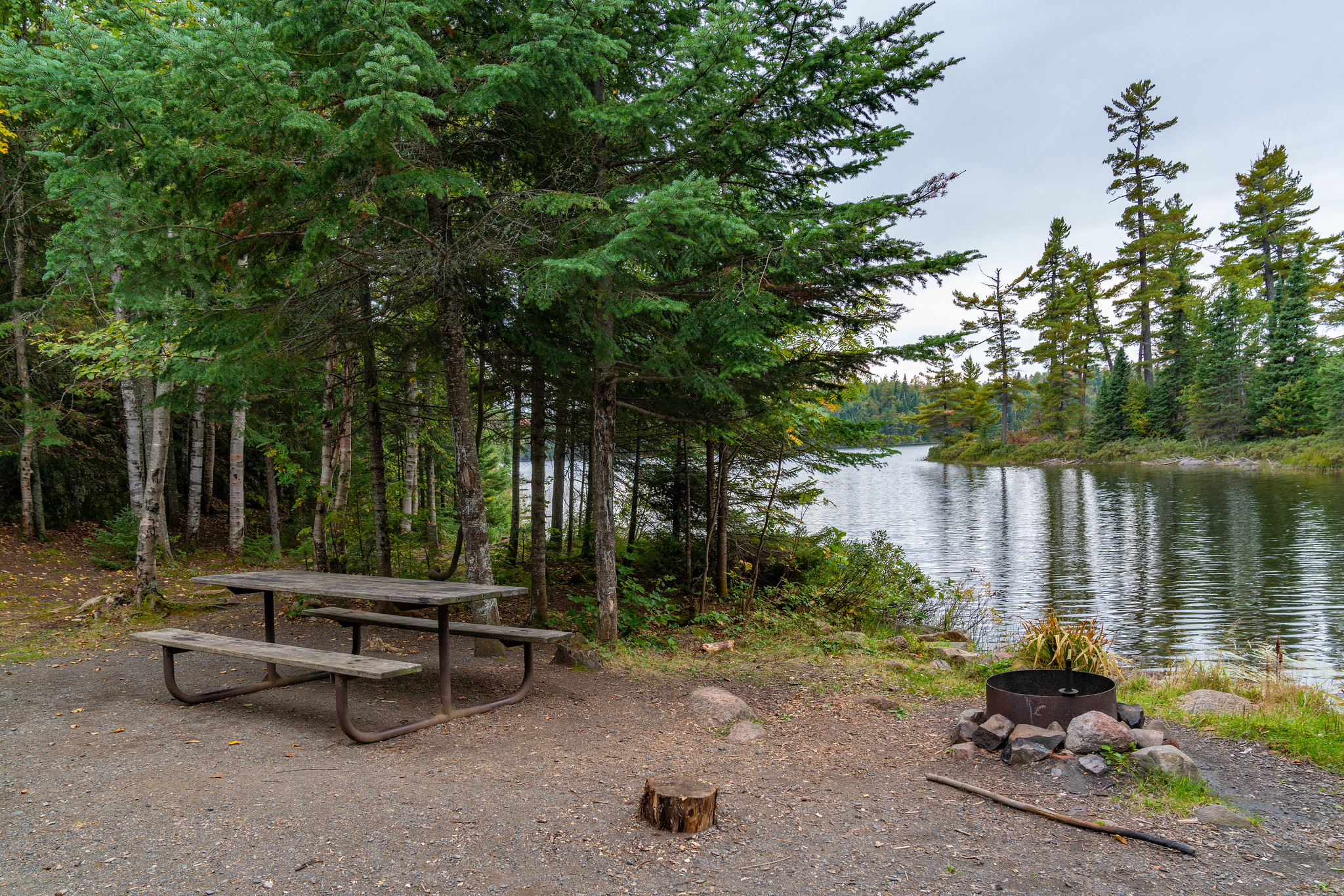As a civil engineering firm, the most common question we get from new or prospective business owners about to embark on a campground development is “how much is it going to cost?” To answer this question, the business owner must understand the complexity and uniqueness of each campground development. The average cost of a campground development can vary significantly in one part of Alberta due to factors such as cost of land, soil composition, and access to materials and infrastructure. It is quite difficult to ascertain a clear scope of what you need to ensure your project is financially viable without investing in some upfront costs. Clear as mud, right?
Here you will have a better sense of what will cost money for your future campground development. We will explore in depth the upfront costs and other major cost considerations in building a campground from land acquisition, a feasibility study, a Phase 1 ESA, rezoning, civil engineering, infrastructure, grading, and lot creation, etc.
Understanding the Basics of Campground Construction
Defining Your Campground Business Vision
The campground industry is not so different than any other hospitality business. Aside from finding a desirable location at the right price point, you will need to build the right number of campsites that complies with municipal bylaws, maximizes the space, and provides sufficient revenue. Campground owners will also need to find the right mix of tenting, RV, and glamping sites to maximize campground revenue. Your business plan should have an in-depth understanding of your competition, price points, your customer persona(s) and your target market. Will your campground appeal to a certain niche (i.e., winter camping, fishing enthusiasts, comfort camping, etc.)? What type of infrastructure needs to be in place to support your niche campground? Your business plan will be the most time consuming as you will need to do in-depth research to ensure your campground development is feasible. It is wise to partner with a civil engineering firm at this planning stage to avoid any major unexpected development expenses.
Necessary Permits and Regulations
During the planning phase of a campground development, the developer can expect some upfront expenses to ensure the campground development is viable. The budget will include but not be limited to the following:
Area Structure Plan (ASP)
A campground development doesn’t always require an Area Structure Plan. If there is no pre-existing ASP or the ASP doesn’t match future development, the Developer will require a new ASP. The ASP is a high-level conceptual plan for land use, and it provides a framework for future development. The ASP requires a significant amount of time and resources from the Municipality and the Developer to complete. Early public engagement for key stakeholders is vital to preparing an Area Structure Plan.
Rezoning
Is the commercial real estate you are purchasing zoned for what it is intended for? If the commercial property needs to be rezoned, you will need to work with the municipality. This process can be time consuming since the municipality will need to consult stakeholders on new development. There might be pushback from residents if the development significantly increases traffic, etc. in their neighborhood. Rezoning involves paying municipal fees, public consultation and time.
Bylaws
While investigating bylaws requires more time than money, you need to be aware of the legal requirements and regulations. Regulations will vary from jurisdiction to jurisdiction in Alberta, so it’s best to consult each municipality during the planning phase. Bylaws will impact the size of your campsites, campground density, the type of infrastructure required, etc. which will impact your campground profitability. Municipalities may require road upgrades, fire hydrants and other infrastructure which is paid for by the developer. If you have to upgrade the adjacent highway, will your project still be feasible? These questions need to be investigated before the conceptual phase.
Phase One Environmental Site Assessment (Phase One ESA)
Prior to completing your commercial real estate transaction, it is wise to have a Phase One ESA completed. A Phase One ESA is a risk management tool that protects the buyer from purchasing a property that is contaminated (which would deem the property worthless). Most lenders will require a Phase One ESA before you purchase the land because reclamation can be very expensive.
Geotechnical Investigation
You may need to have the ground properties tested to ensure the ground conditions are suitable for future development. A Geotechnical investigation will determine the soil profile and groundwater status of the proposed site and make recommendations for site preparation, design recommendations and surface drainage. For example, if the site has organic soil on the surface it must be stripped and clay may need to be brought to create a solid foundation. These are additional costs that must be factored into the budget.
Wetlands
The wetland assessment will determine which portion of the land is developable. The wetland assessment cost and its implications will need to be factored into the overall campground business plan and design. Is your campground development feasible if you cannot develop 25% of your land? If it is deemed that you can build over a wetland on the property, the developer is required to pay a fee to the wetland bank. A wetland bank is a provincial program that uses those funds to reconstruct or revitalize wetlands at other locations.
Permits and Approvals
Acquiring the permits for your development requires applications and fees paid to the municipality. There will be an extensive list of permits that are required including electrical installation permits, waste discharge permits, permits for water systems, construction permits, building permits, roadside development agreements, etc.
Civil Engineering
Partnering with the right civil engineering team will expedite the campground development and remove bottlenecks in the process. In collaboration with the developer, a seasoned civil engineer will create a campground design, drainage & stormwater management plan, and services (hookups, septic system and water) that maximizes the property’s features.

Breakdown of Campsite Construction Costs
Land Acquisition and Preparation
The first major expense associated with building a campsite will be the acquisition of real estate. The land acquisition should probably be considered only upon successfully running a feasibility study with a qualified engineering firm. The cost of land will need to be balanced with the number of campsites, natural amenities, and annual occupancy. Working with a commercial real estate broker and a civil engineer at the beginning stages will help you understand if your project is viable. Each campsite cost can range anywhere from $15,000 to $50,000 or more depending on the campground amenities and location.
Infrastructure and Facilities
There are various amenities and facilities that can cost money but may increase occupancy and return on investment for campground owners. While the list is endless, your campground design should have the following:
- Water Hookups. Since campgrounds are usually remote, you will likely need to drill a well for water hookups. The well depth will directly impact your overall well costs which could range anywhere from $5,000 to $20,000 or more which includes permits, drilling, a well pump, well casing pipe, electrical wiring, pressure storage tanks, water treatment, water heater and water quality testing. You will also need to factor in the cost of labour to install pipe to each campsite.
- Sewage Hookups. Assuming you are not on city services, you can save as much as 75% of your sewage costs by having a dump station instead of individual campsite sewage system.
- Dump Station. A dump station can cost upwards of $40,000+ which would include the cost of septic tanks, drain fields, piping, and the cost of labour. The dump station size would be scaled according to the size of your campground and RV occupancy.
- Electrical outlets with Meters (50-amp, 30 amp and 15 amp). You can expect to spend at least $2500+ per site for electrical outlets. Installing high amperage sites will accommodate those will larger rigs. Also of note, as more people purchase electric vehicles and use air conditioning in the Summer, it may pay to install meters at each site and charge for any overages.
- Internet. Wi-fi is in high demand and this trend won’t be going away anytime soon. With internet access, campers are willing to stay longer with options to work remotely. Many campers will search for campgrounds that have wi-fi so they can stream Netflix, post their experiences on social media (yeah! free marketing) and access e-mails. This is especially important in locations where cell tower service is spotty and inconsistent.
- Public Washrooms with Showers. Washrooms with showers will cost anywhere from $8,000 to $20,000. Larger washrooms with more features (i.e., pay per shower, multiple showers, larger facilities) will require more materials, installation, and labor. Remote locations can bump up your costs as transportation of materials and labor will be factored into the overall costs.
- Playground. Families with younger children will benefit from a campground playground. Playground equipment varies between manufacturers, but you can expect to pay about $1000 per child. If you want a playground that accommodates 20 kids at once, then you will likely pay around $20,000. The more elaborate the playground, the more you can expect to invest. Consideration should be given to the age groups of kids coming to your campground and what will have the most impact.
- Camp Store. Ice cream, ice, firewood, and other necessities such as RV toilet paper are useful revenue streams to sell at your campground store. You can expect to spend $100 to $200+ a square foot on a campground store. The location, size, and materials you choose will impact the overall cost. You will also need to stock shelves and make trips for supplies on a regular basis.
- Roads and Parking Pads. Will you be paving roads with asphalt? Will the RV pads be made of gravel or concrete? Asphalt and concrete have higher costs upfront than gravel. Concrete is the most expensive ($18.00-$25.00 per square foot) but has the longest shelf life of 50+ years and the least amount of maintenance. Asphalt will last about 25 years and is not as expensive as concrete. You can expect asphalt to cost $7-$13 per square foot but it will require regular maintenance. Gravel is the cheapest option ($4 -$12 a linear foot) and will last 5-10 years.
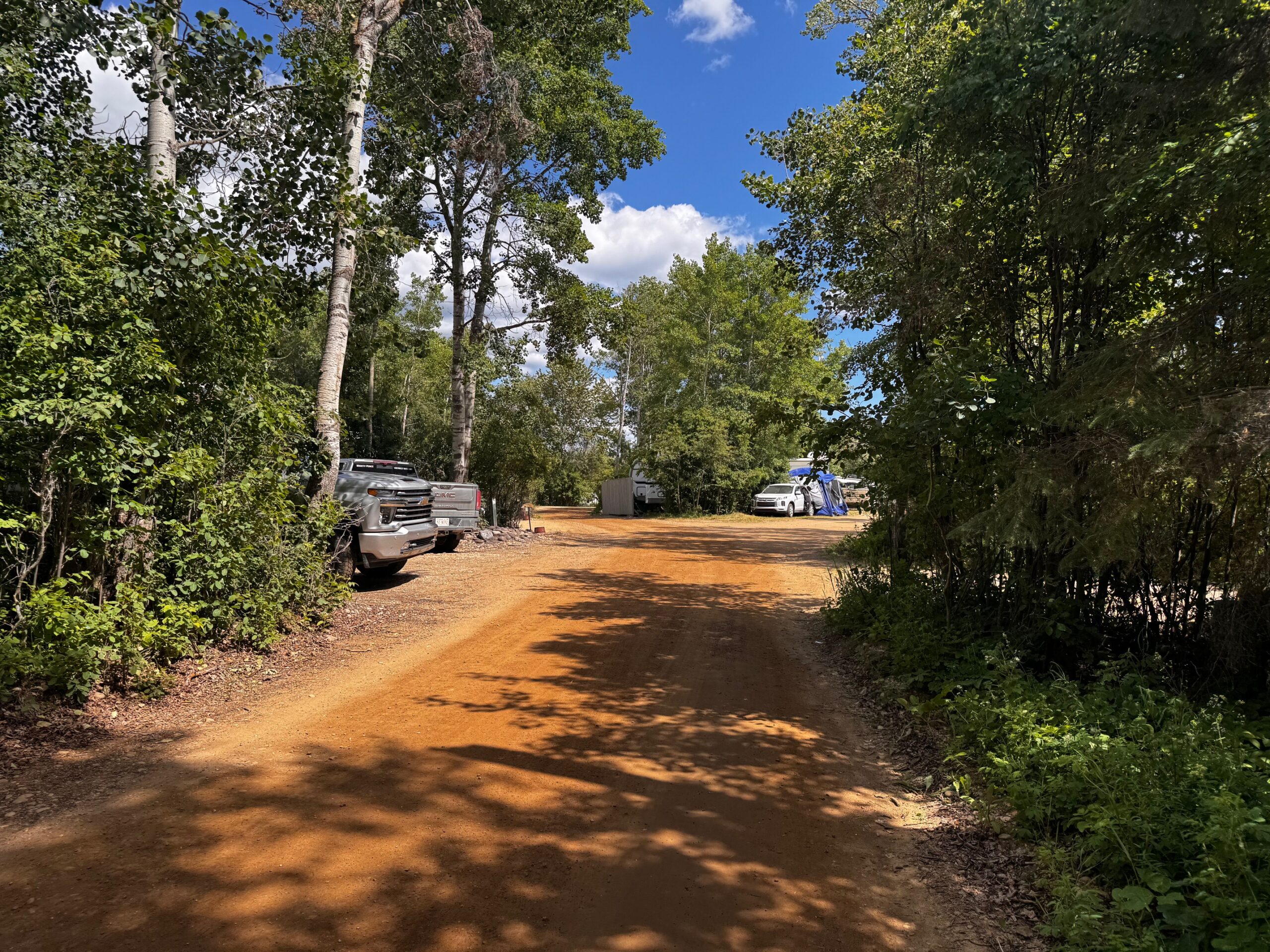
Shaw's Point Resort at Slave Lake, Alberta
Safety and Security Measures
An ounce of prevention goes a long way when it comes to keeping your campground and campers safe. Gated security, surveillance cameras, anti-slip shower mats, fenced perimeter, properly lit common areas and animal deterrents (i.e., special garbage cans) are good security measures for your campground. Safety and security measures will add to the overall costs but are worth their weight in gold as they will prevent all kinds of future problems. Be sure to factor in your secure options in the design stages of your campground.
Ongoing Maintenance and Operational Costs
Regular Upkeep and Repairs
Choices made early in the construction process can greatly impact ongoing costs to maintain the campground. Choosing cheaper materials now will lead to higher maintenance, replacement, or upgrade costs in the future. Investing in electricity consumption meters will prevent massive energy bills during intense heat waves. Alternately, solar powered options will also help manage electricity consumption. While solar energy is a huge investment upfront, it pays to explore an incentives that can help with overall costs.
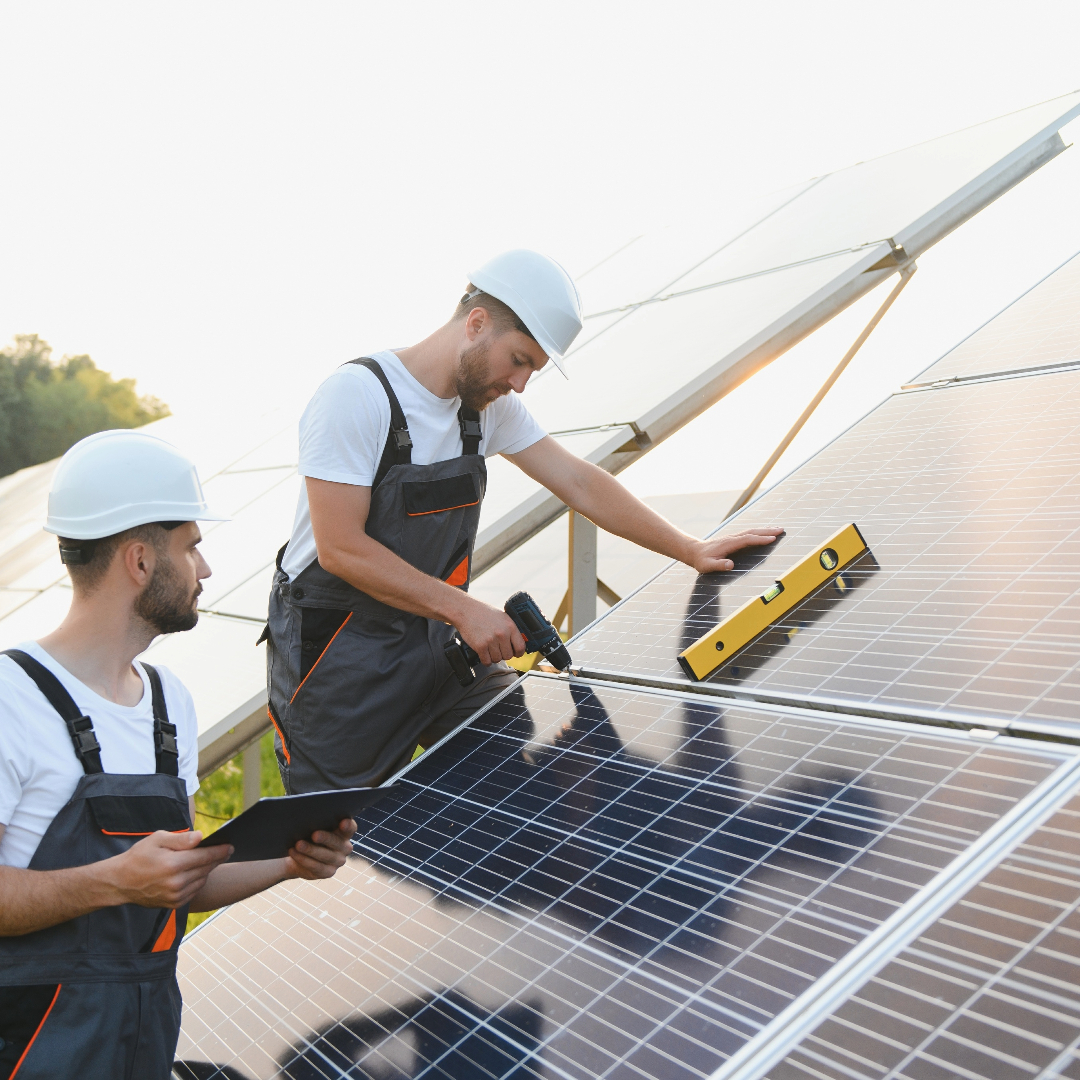
Utilities and Services
Here we will outline common operational costs:
- Expenses for water and electricity consumption
- Waste management and garbage collection
- Restroom supplies
- Property taxes
- Staff Training
- Internet
- General liability insurance
- Marketing and advertising
- Website
- Computer Software (Word, Excel, Quickbooks, etc.)
- Online reservation systems
- Repairs and maintenance of campground
- Supplies for the store
- Accountant fees
- Office supplies
- Campsite maintenance staff payroll and payroll taxes
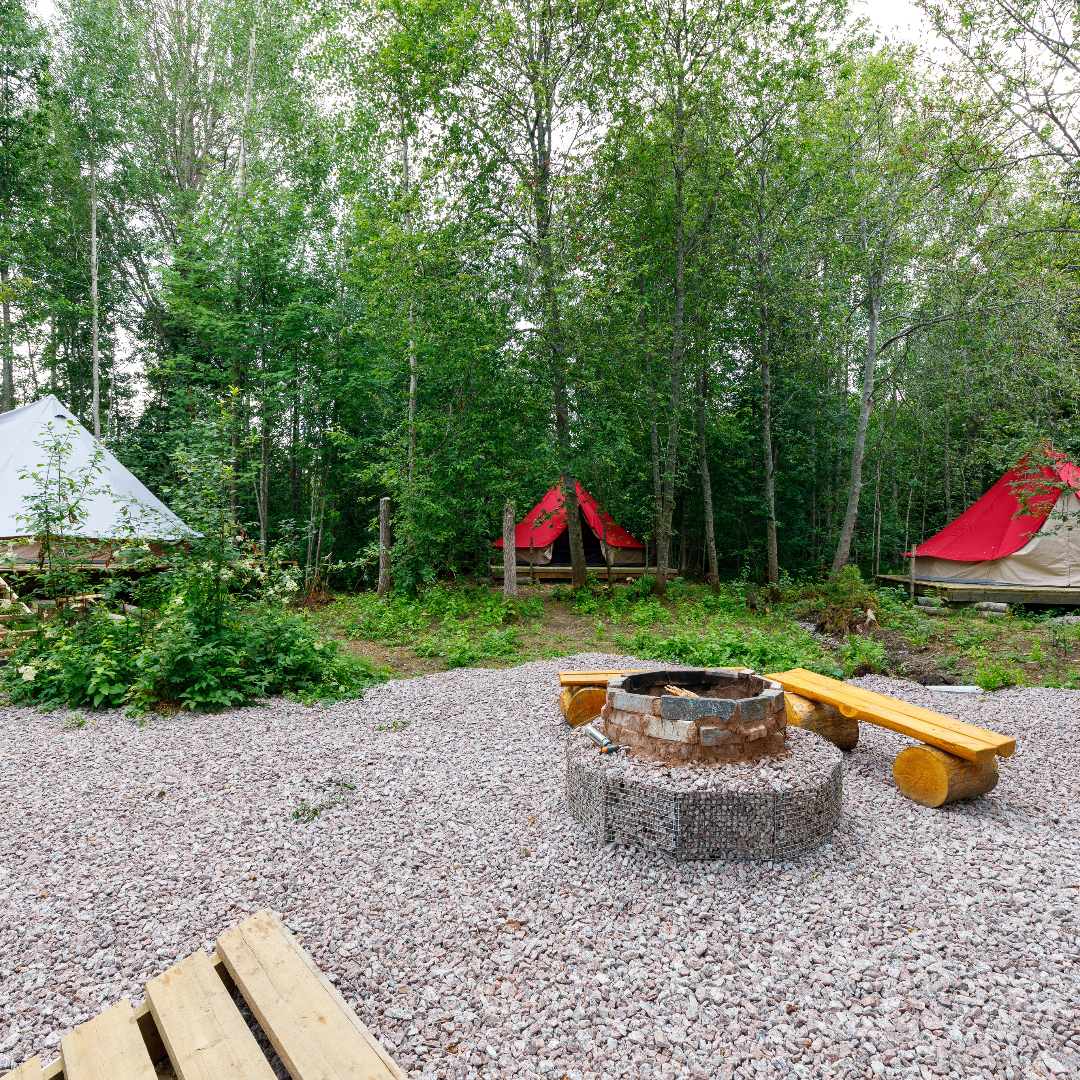
Making informed engineering decisions during the campground design process will be critical to managing your overall costs. Here are some engineering design cost-saving options that should be explored during the campground design stage:
- Forgoing individual sewage lines at each site can save money.
- Insulate waterlines so that you can operate year-round increasing your annual revenue. Extending your season to offer winter glamping or snowmobiling are some creative ways to bring in revenue.
- Electricity meters at each site to manage electricity consumption.
- Rain harvesting to water landscaping
- Group sites are quite popular, and they can also reduce the buffer space required between regular sites reducing the amount of space required. Striking a balance between density and natural amenities is always a challenge for campground owners.
- Combining stormwater ponds with recreational areas is also a great way to save valuable campground space.
- Offer onsite RV, trailer, and boat storage rental space before and after their camping experience. This revenue stream is useful if you have decided to develop your campground in phases.
- Invest in amenities with the high returns. There are tons of creative ways to offer unique camping experiences. Your campground could be a wedding destination, a brewery, an animal farm, a local marina or have an assortment of food trucks. Maximizing your recreational spaces will keep your campground relevant and adaptable over the service life of your campground development.
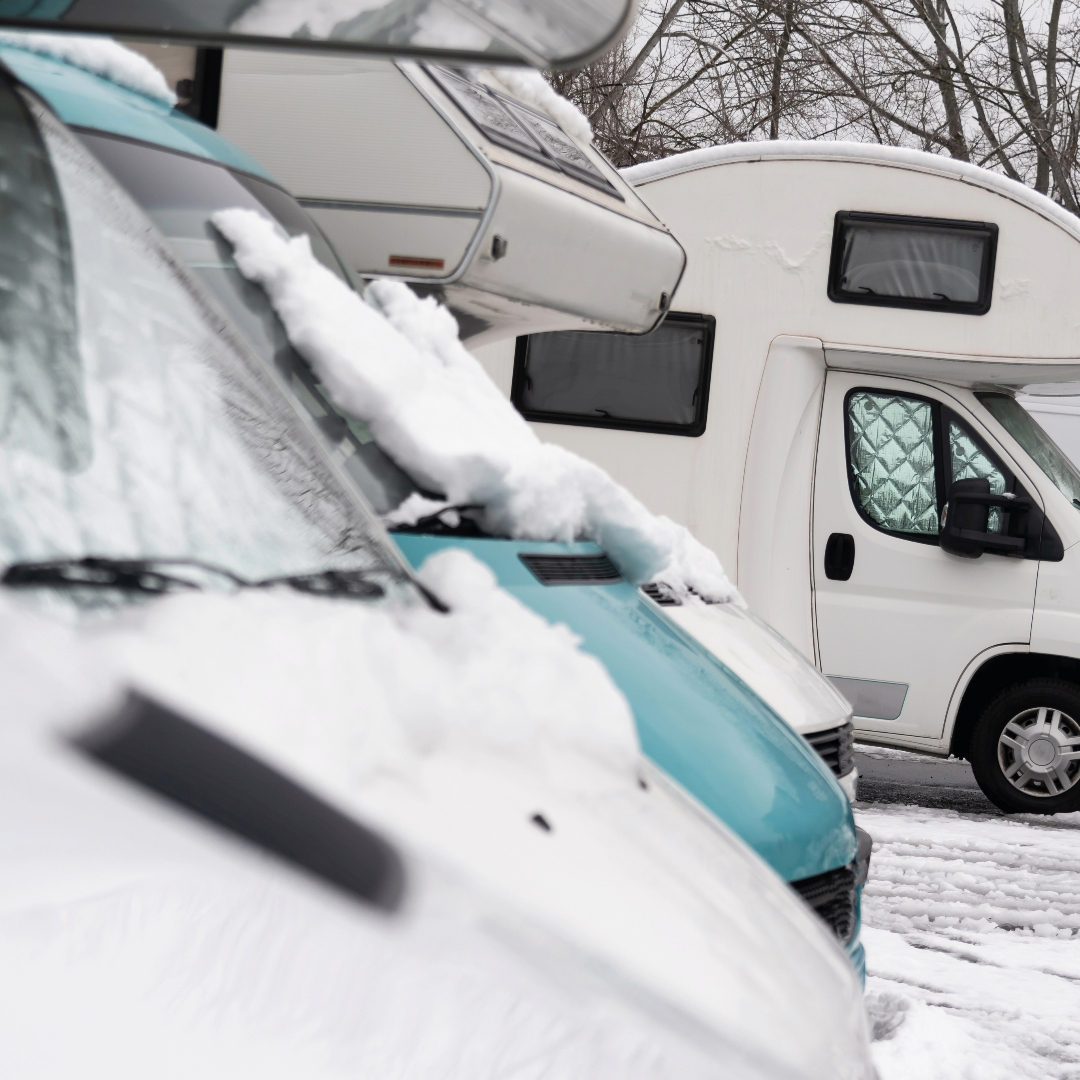
The Path Forward
Spending the time and money up front to really understand the feasibility of a campground construction project is key to a campground business success. Running a profitable hospitality business requires making plenty of campground design decisions that reflect your budget, future maintenance costs and consumer behavior. Working with the right civil engineer in the beginning stages of your campground development should alleviate some of these development challenges. From campground developments to RV storage and full-scale commercial developments, we invite you to connect with Bolson Engineering and Environmental Services. Together, we can turn your vision into reality. Don't miss out on the incredible potential that awaits you in the world of development - take the first step towards success by reaching out to us today.

